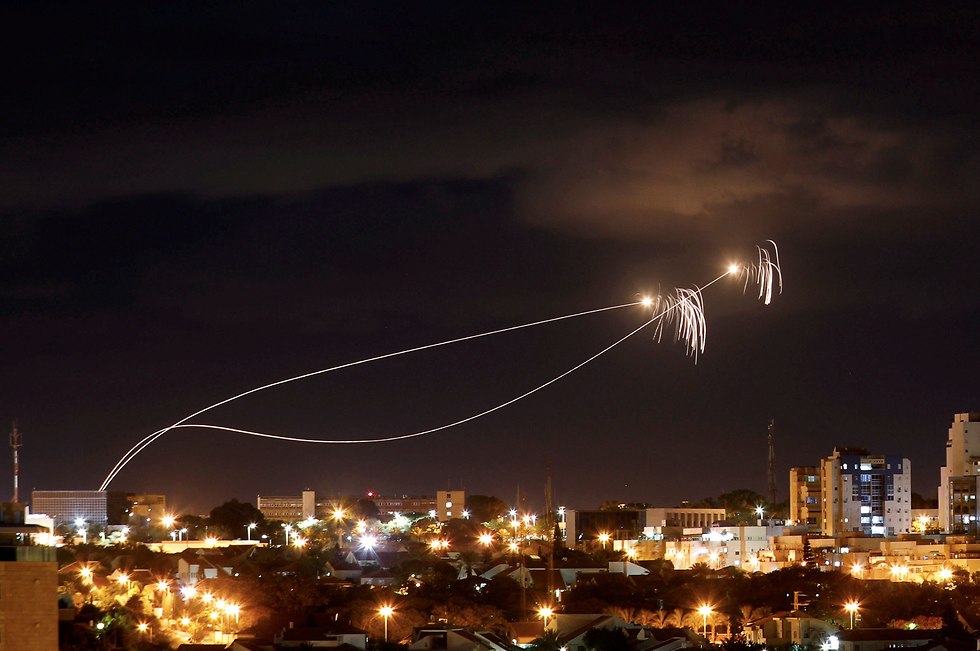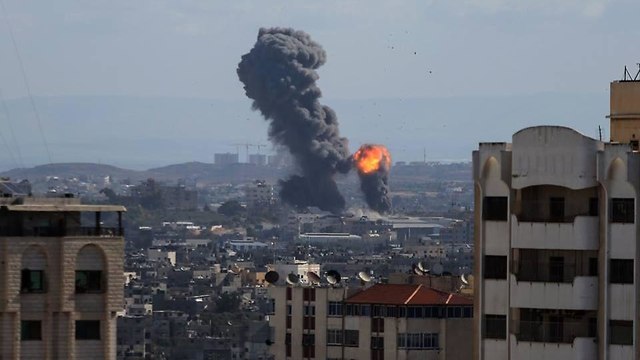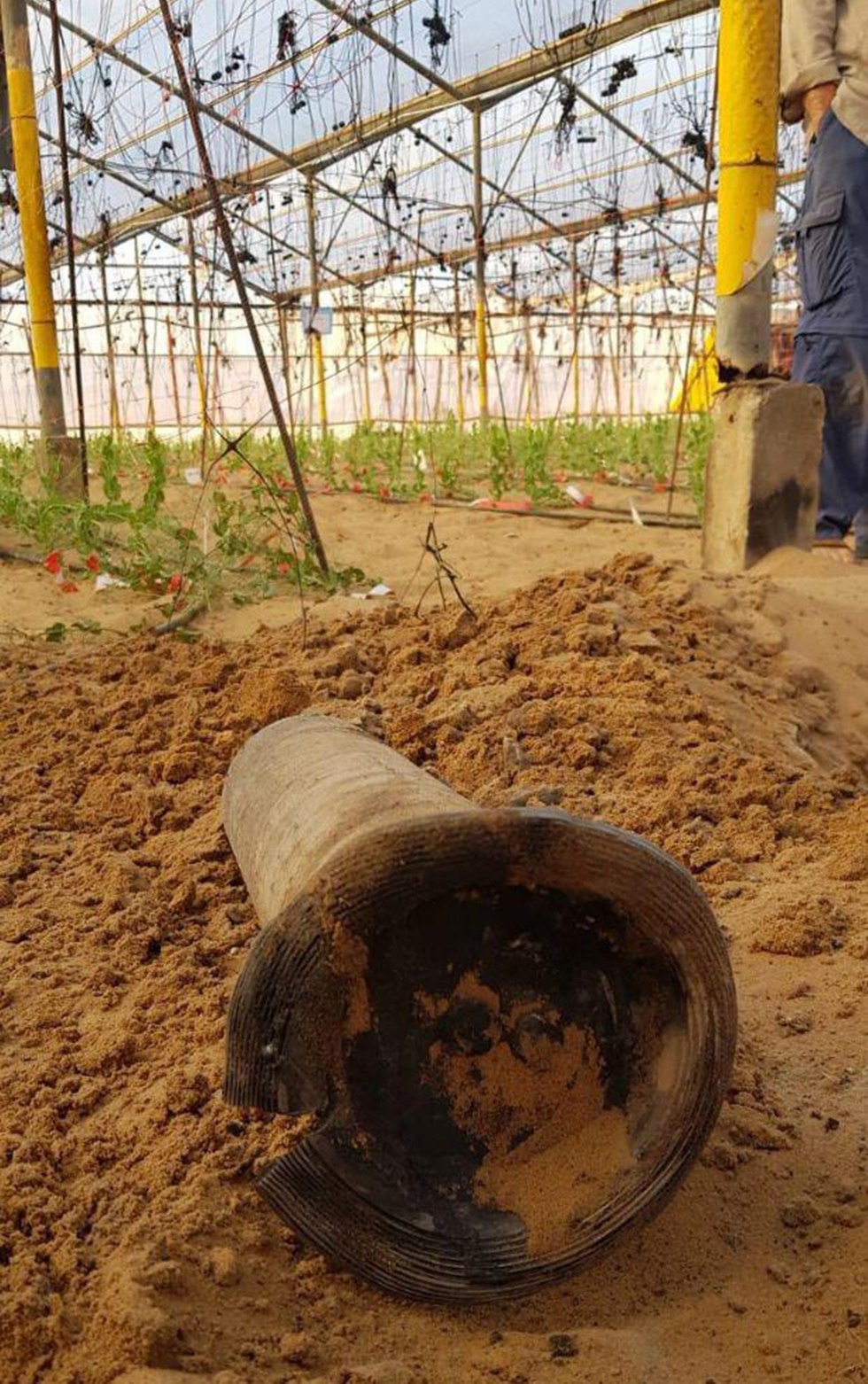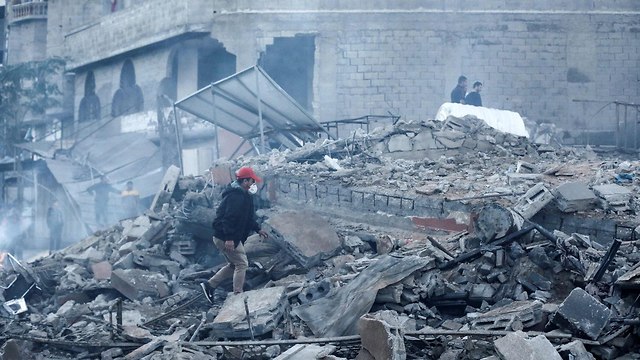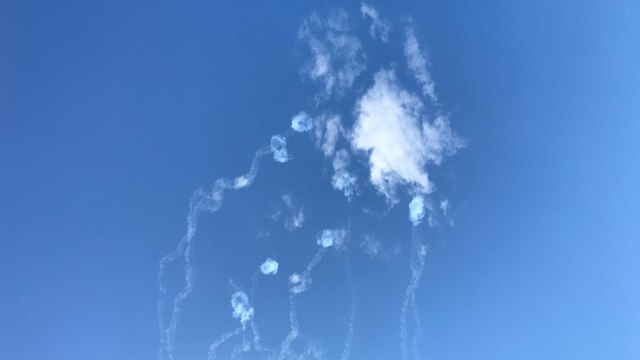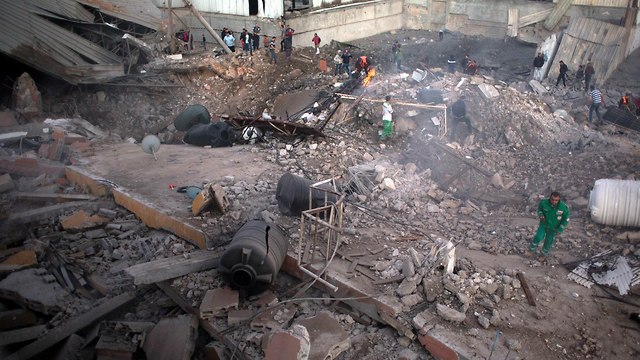

Iran is pressuring US using Islamic Jihad in Gaza
Analysis: Iran is worried by Netanyahu's visit to Oman and the progress in ceasefire talks in Gaza. To disrupt these efforts, Tehran sent Islamic Jihad to fire a massive barrage of rockets. Islamic Jihad also stands to gain, it gets to have the final say and claim a victory.
The Palestinian Islamic Jihad, which was behind the escalation in the Gaza Strip over the weekend, normally works in coordination with Hamas. As the second biggest and strongest military organization in Gaza, it feels responsibility towards the strip's residents and serves as a silent partner to the Hamas regime. Ideologically and religiously speaking, the Palestinian Islamic Jihad is not much different to Hamas, which is another reason for the good, close cooperation between the two factions.
The main difference between Islamic Jihad and Hamas nowadays is mostly their relationship with Iran. Hamas receives financial support and technological aid from the Islamic Republic, despite the fact it is a Sunni organization and despite the "bad blood" between Hamas and the Ayatollah regime over the Syrian civil war.
Meanwhile Islamic Jihad, which is also Sunni, has subjugated itself almost completely to Iran. Like Hezbollah, Islamic Jihad receives not just money and weapons from Tehran, but also orders. This must also be why it initiated the escalation over the weekend.
A senior security official shared that assessment, noting the organization's new leadership—which now sits in Damascus—is far more extreme than that of Ramadan Shalah, and is more devoutly serving the Iranians. And so the Gazan Islamic Jihad is trying to create a new equation according to which it would respond with rocket fire to Palestinians deaths in the riots on the strip's border.
"We won't allow for a new equation of this type, and we won't let Islamic Jihad launch rockets at Israel without us responding with a heavy military blow. We also won't allow Islamic Jihad to do as it pleases with the silent consent of Hamas," the senior security official said.
So what happened this weekend to make Islamic Jihad break away from the restraint imposed by Hamas under Egyptian pressure, with the hope of improving the living conditions of the Gaza residents? The main cause was the reports on Friday that the Egyptians have finally reached understandings with Hamas to restore calm in Gaza, more or less under the same parameters put in place after the 2014 Operation Protective Edge.
Another explanation lies in Prime Minister Benjamin Netanyahu's trip to Oman and the diplomatic talks he had there with Sultan Qaboos. Several days before Netanyahu, Palestinian Authority President Mahmoud Abbas visited Oman, with Sultan Qaboos initiating this indirect dialogue between Netanyahu and Abbas and doing a great service to the American administration.
The Iranians, who saw and heard the reports from Gaza and Oman, are worried the arrangement in the strip would allow the Americans to make a bigger move to present their plan to end the Israeli-Palestinian conflict. They don't want this to happen and are doing all they can to disrupt such a move. Tehran is also trying to put pressure on the Americans to prevent US President Trump from re-imposing a second wave of sanctions on November 6, targeting the export and sale of oil.
In other words, the Iranians are trying to pressure the Americans by sabotaging their interests concerning Israel, to spare themselves the harsh sanctions. It is therefore rather clear why Islamic Jihad would act against the interest of Hamas, which wants to bring the negotiations with the Egyptians to a successful end, by escalating the situation in the service of its masters in Tehran.
The Islamic Jihad leadership also has its own reasons. All of the Palestinian factions in Gaza, and mostly Hamas and Islamic Jihad, want not only an arrangement that would lead to a truce and ease the humanitarian distress of the strip's residents, but also a victory they can claim. They want to have an arrangement on their terms, which they could present as a military triumph of the "resistance" over Israel.
The Gaza factions don't want to admit that the "March of Return" campaign, which led to more than 200 Palestinian fatalities and thousands of others wounded, was a complete failure. They want to show the Palestinian blood spilled on the border was not in vain, and so they need that psychological victory. Therefore, with the arrangement closer than ever, Islamic Jihad seeks to have the final say with the final shot, thus proving the "March of Return" campaign and the arson terrorism forced Israel to accept the terms of the agreement mediated by the Egyptians.
Islamic Jihad can afford to fire that final rockets barrage because it knows Israel has made a strategic decision not to launch a wide-scale ground operation and take over the strip. And so Islamic Jihad—and Hamas—are willing to suffer serious damage to their military facilities, for the sake of that psychological victory. That way, they don't lose face in Gaza in case a ceasefire is reached, and their patrons in Tehran are pleased.
Israel accepts this pattern, which has cemented itself since August: the Egyptians negotiate with Hamas and Islamic Jihad. The two organizations promise restraint but continue with the March of Return riots and the incendiary balloons. From time to time, when there are difficulties in the negotiations with the Egyptians, Hamas, Islamic Jihad or the errant factions escalate with rockets—while the Hamas political leadership looks the other way—following which the talks with Egyptians resume with Israel giving Egypt as much leeway as necessary to reach a stable arrangement.
Israel's security heads—primarily Prime Minister Netanyahu, Defense Minister Lieberman and IDF Chief Eisenkot—have decided that in any case it's best to let the Egyptians exhaust their influence on Hamas. And as long as the negotiations continue, Israel can settle for measured responses to the rioting on the border, the incendiary balloons, and the rockets. The Iron Dome gives the security heads the feelings that we could tolerate an erosion of the Gaza border residents' sense of security, so long as we don't have to launch a large-scale war in the strip that would cost us in lives and economic damage and end exactly as Operation Protective Edge and its predecessors had ended.
This cold and cruel calculation is what causes the fire from the strip, the ongoing erosion of the Gaza border residents' sense of security, the worsening humanitarian distress of the Palestinians in the strip and the rocket fire.
Israel accepts this situation, inter alia, because it wants the close cooperation with Egypt to continue and because its security heads realize there is no point in a large military campaign in the strip right now without the decision to take over Gaza and hold it for over a year in order to establish a different regime there. After all, it's not even guaranteed that we could find a different and better regime that would stop the rocket fire.
Israel therefore uses these rounds of escalations to systematically destroy considerable parts of Hamas's quality military capabilities—both to make an example out of them, but also because when the IDF does go to war, large parts of Hamas's military assets (mostly its tunnels, naval commandos and special aerial measures) will be out of commission and won't harm us.














